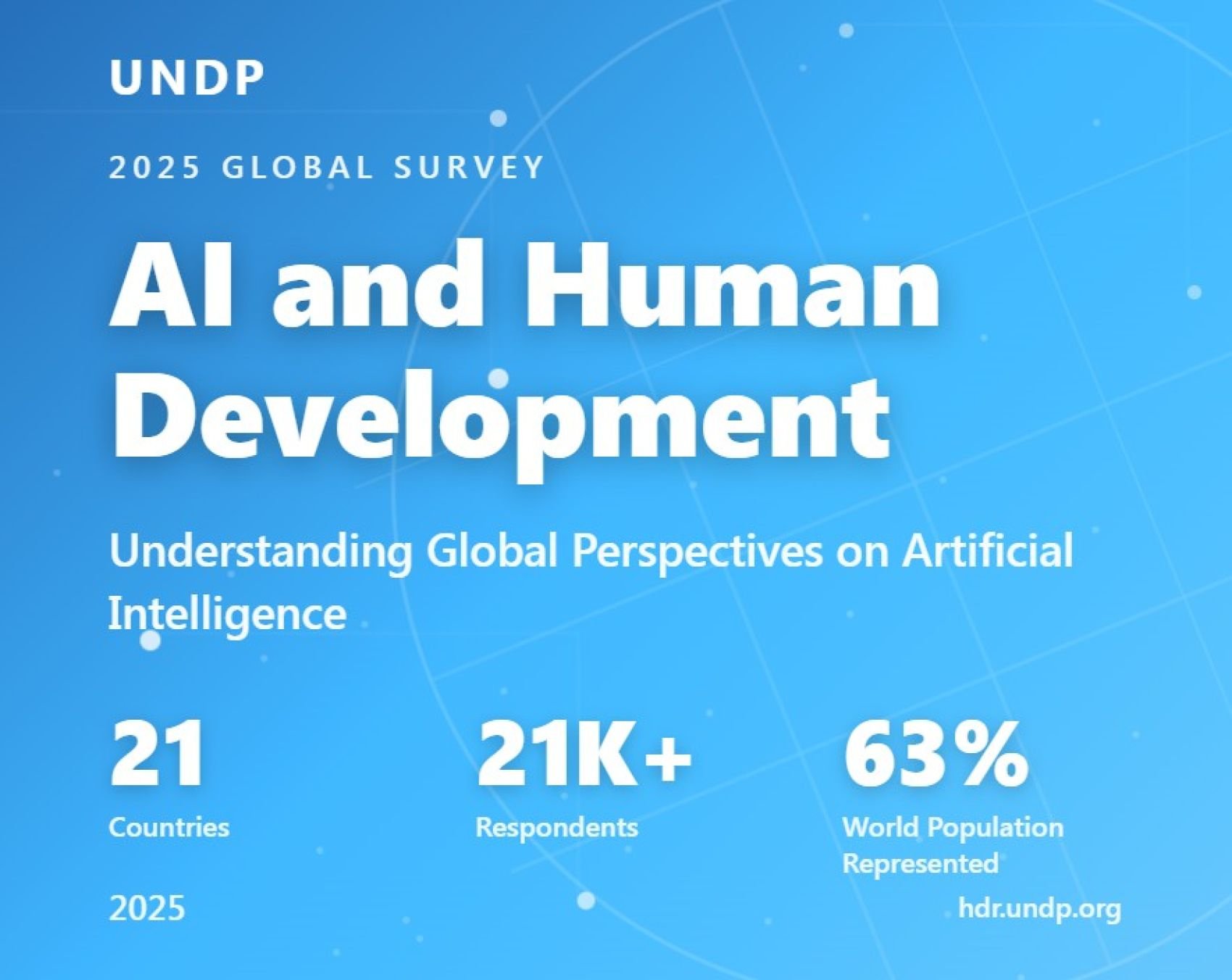Download Press Release: English (PDF)
Nearly seven out of ten people in the Dominican Republic (68.9 percent) report using Artificial Intelligence (AI) more than once a week, according to new research released today by the United Nations Development Programme (UNDP) in the Dominican Republic and UNDP's Human Development Report Office (HDRO). The study reveals that Dominicans are realistic yet deeply hopeful about the transformation AI can bring to their lives and the economy.
The national analysis found that 66 percent of respondents confirmed AI has helped them either solve problems in their studies or improve productivity at work. Most significantly, while 67.4 percent of respondents believe jobs could be replaced by AI soon, an even larger proportion (73.3 percent) believe that learning more about artificial intelligence could help them find new job opportunities. This optimism increases with education level, with 82.0 percent of university-educated respondents expressing this positive view.
"The Dominican Republic's findings showcase a population that is actively engaging with AI and sees it as a pathway to opportunity rather than a threat," said Ana Maria Díaz, Resident Representative UNDP Dominican Republic. "While interviewing students about their perspectives on future professions, we found that 42.9 percent are inclined to study STEM fields. This suggests a promising development of national capacities to enhance the use of AI, better prepare for the rapid transformation of labour markets, and seize global opportunities."
Practical Applications Drive Usage
The study shows that Dominicans are using AI to solve specific, practical problems beyond recreation. Usage spans multiple areas: 47.4 percent for studies, 37.3 percent as a work tool, 33.6 percent for accessing public services in education and health, and 31.3 percent for financial services. Among public servants in the Dominican Republic, AI usage more than once a week reaches 67.1 percent.
Addressing the Gender Gap in AI
The national data highlight important areas for policy focus, particularly concerning gender disparities. While 38.6 percent of men and 35.7 percent of women reported using AI for work purposes, women (50.6 percent) make greater use of educational and professional training platforms than men (42.3 percent).
However, when it comes to future STEM education, a significant gender gap emerges: 52.7 percent of male respondents expressed interest in STEM careers, compared to only 34.8 percent of female respondents. This disparity points to the need for targeted interventions to ensure women can fully participate in AI-related opportunities.
Part of a Global Pattern of Optimism
The findings from the Dominican Republic align with results from UNDP's Global Survey on AI and Human Development, which surveyed more than 21,000 people across 21 countries from November 2024 to January 2025. Globally, one in five people already use AI, and two-thirds anticipate using it within a year. Six in ten people worldwide expect AI to impact their employment positively.
"The global average shows that six in ten people expect AI to impact their employment positively, creating opportunities in jobs that may not even exist today," said Pedro Conceição, Director of the Human Development Report Office. "This tells us the world has a great responsibility in fulfilling this expectation, as opposed to designing and deploying AI that works against people."
Low and middle-income countries exhibit particularly high hopes for AI, with 70 percent of respondents expecting AI to enhance their productivity. This contrasts with wealthier countries, where 40 percent of individuals anticipate the possibility of being replaced by AI in their employment.
Policy Recommendations
To effectively respond to people's expectations and leverage this momentum for human development, UNDP proposes three critical areas for policy action:
- Building an economy where people collaborate with AI rather than compete against it.
- Embedding human agency across the full AI lifecycle, from design to deployment.
- Modernizing education and health systems to meet 21st-Century demands.
UNDP's efforts build on the momentum of its flagship 2025 Human Development Report, "A matter of choice: People and possibilities in the age of AI."
